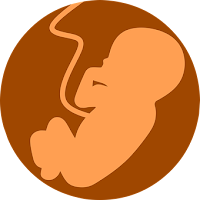All of us look at the world from different mountain tops which we have built up over the years. Our experience, knowledge, family, environment, religious beliefs or lack of them, and many other elements make up who we are and what we hear and see. In the Catholic Peace Weekly, an article on the declining birthrate is a serious concern for the country and the church.
Developing countries usually have a higher fertility rate for many varied reasons, developed countries' fertility rates are usually much lower. Birth control methods are easier to obtain and women often choose a career before becoming mothers.
According to the '2020 Birth Statistics' released by the National Statistical Office at the end of August, the number of births last year was 272,300. Compared to the previous year, 2019, the number decreased by 10%, or 30,300. Compared to the 1.10 million births in 1970, at the height of the second baby boom, the annual number of births decreased to less than a quarter (-73.1%) in the past 50 years.
The total fertility rate was 0.84, down 0.08 from the previous year, the lowest since the birth statistics were compiled in 1970. Korea's fertility rate is the lowest in the world. Among the 30 OECD (Organization for Economic Cooperation and Development) countries, Korea is the only country to have a fertility rate of 0%. Israel had the highest total fertility rate of 3.1, followed by France at 1.83, the US at 1.71, and Japan at 1.36, with most countries accounting for more than the mid-1%.
To increase the proportion of infants and toddlers, it was suggested that the church should actively open the church as a space for child-rearing and more active religious education for infants and young children.
With the birth rate falling sharply, the church has a bleak future. According to the ratio of believers by age in 2020 announced by the Conference of Bishops, there were 37,358 believers aged 0-4, and the ratio of believers to the population of the same age group was only 0.6%.
In 2010, the number of 0-4-year-olds was 68,139, 1.3% of believers. According to the Bishops Conference, as of 2020, 83.8% of 1,767 parishes nationwide, or 1481 parishes, are operating Sunday schools. The number of Sunday School students in 2020 decreased from 2019 by 24.2%. or 21,643.
As the COVID-19 pandemic continues, the current plummeting fertility rate and the sharp drop in the ratio of young people are combined, it is expected that more parishes will face great difficulties in operating Sunday schools within a few years.
A priest in Seoul said: "I think this low fertility rate is perhaps a warning signal for the future of our country. The church needs to play a bigger role so that we can raise the fertility rate." The church can take interest in infants, material support for single mothers and pregnant women, the spread of prenatal meetings and infant education, and the expansion of daycare facilities in parishes. Running a nursery class, where young couples can bring their children to the church to reduce the burden of childcare.
Another priest has suggested that the church should open the parish grounds to the neighbors. "If the reason young people are not getting married now is because of the burden of childcare, it would be good to use the church space as a kindergarten, etc., and use it as a space where young people can have and raise children with confidence. Let's open up the church's space to society and share it with all.
It is difficult to find Catholic parishes that link childbirth, care, and education issues to encourage childbirth. Some Protestant churches are much more active than Catholics.
The competition in Korea is fierce and the young see the prospects of a family and children as a great burden. Certain areas have understood the situation and have become very family concerned with free kindergartens and trying to change the economic situation and atmosphere of the neighborhood to family-orientated needs.
